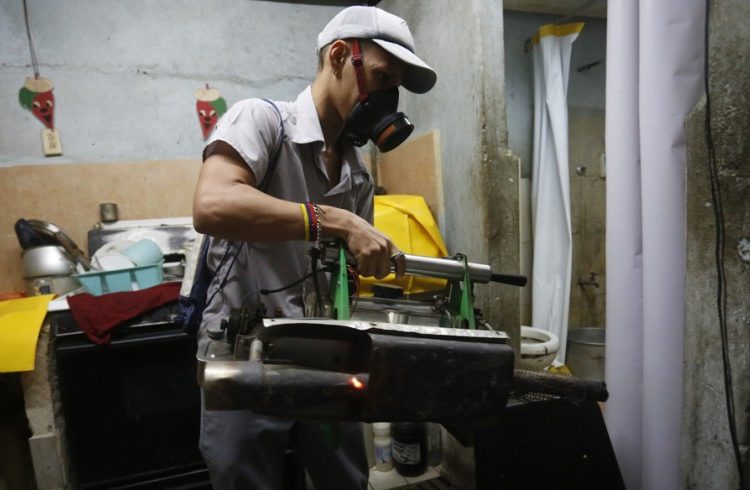A Venezuelan doctor, 28, became the first person to be diagnosed with the Zika virus in Cuba. The young woman travelled to Cuba to attend a postgraduate course of Gastroenterology and was admitted to the Pedro Kouri Tropical Medicine Institute when she presented a fever of 37.5 Celsius, and a skin rash on February 22nd.
According to the Cuban Ministry of Health, this first case was detected in a student accommodation in Machurrucutu, in the municipality of Bauta, to the west of Havana, where doctors coming to study in Cuba undergo a preliminary health screening.
The foreign student had been in touch with people infected: her husband and her brother-in-law got infected with the virus a few weeks before her trip.
Since the day she was admitted to the hospital in Cuba she hasn’t had a fever again, she didn’t develop conjunctivitis, and the skin rash is getting better.
No other cases have been reported at the Machurrucutu accommodation.
The appearance of the feared virus in the Caribbean island confirms the need of the campaign launched by Cuban health authorities to protect the country from a potential epidemic spread by the Aedes Aegypti and Aedes
Albopictus mosquitoes.
High levels of these mosquito infestations were reported in 55 municipalities of the country, which led to the deployment of 9,000 reservists of the army and 200 police officers in support of the health campaign underway.
As of February 2016, three of the four serotypes of the dengue virus are known to exist in the country, with cases reported in 11 of the 15 provinces.
In 2015, 29 cases of Chikungunya were also found in Cuba.
The announcement on March 2nd this first case in Cuba is a cause of concern for many Cubans, who have learned the news through the released reposted by the state-run press.
Tighter controls are also being applied in airports as of March 1st, with the installation of thermic cameras to detect cases of fever.
The new regulation also establishes that foreigners travelling to Cuba on student visas will have to present a health certificate, obtained no more than three months prior to the trip, which will have to be notarized at the Cuban embassy in their country of origin or residence.
At OnCuba’s Havana news bureau, we fumigate:
https://www.youtube.com/watch?v=X7tDPcYKJY0










